Dental Implants in Perth
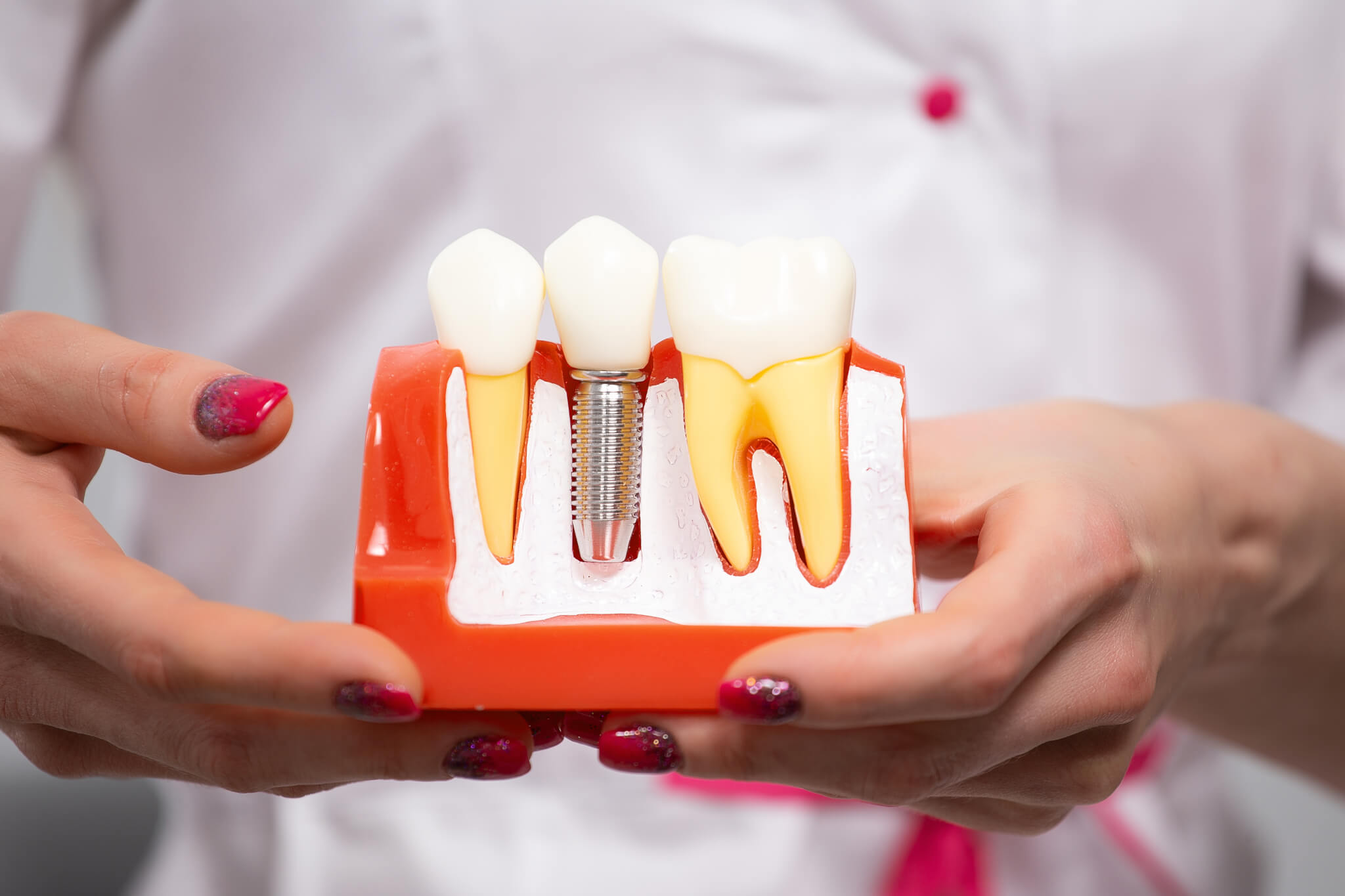
Dental implants are a great way to replace missing teeth. They have high success rates and, if well taken care of, can last a long time.
Dental Gigi has a team of skilled dentists who are trained to carry out complex surgeries, procedures, and bone grafting. They use the latest technology to place your implants, following careful planning and working with skilled ceramists. At Dental Gigi, we do not cut corners, and we use guided surgery. We also offer competitive pricing for dental implants in Perth.
Schedule your consultation at Dental Gigi today to learn how dental implants can restore your smile and confidence.
Are Dental Implants Suitable For Me?
We have an skilled in bone grafting and complex implant surgery.
MEET THE SEVEN EXPERIENCED DENTISTS AT DENTAL GIGI
chosen by over 11,000 happy patients




Why Choose Dental Gigi for Dental Implants

Dental implants are a modern treatment that requires precision and skill, and we take pride in adhering to the industry standards for implant dentistry. Our unique approach helps us consistently achieve favourable outcomes for our numerous happy patients.
- Implants placed by experienced dentists
- Advanced techniques in guided implant surgery method
- Extensive planning with the use of CBCT technology
- High success rates and numerous successful cases
Our Experienced Team

Harman Singh
Dentist
Dr. Harman Singh is an accomplished dentist known for her skills in surgery, root canal treatments, and restorative dentistry. She is currently pursuing her Doctor of Medicine, working towards dual qualifications in medicine and dentistry. This impressive achievement will place her among the few in Western Australia with both credentials. Dr. Singh’s dedication to her craft and goal of becoming an Oral and Maxillofacial Surgeon make her invaluable to the team.
Franscoise Chin
Dentist
Dr. Franscoise Chin has rejoined our team after her time abroad, bringing over 20 years of clinical experience. A graduate of the University of Manchester, she is fluent in multiple languages, including English, Bahasa, Mandarin, Cantonese, Hokkien, and Hakka. Dr. Chin excels in comprehensive dental care and is committed to providing exceptional care to our patients. She also enjoys spending quality time with her family.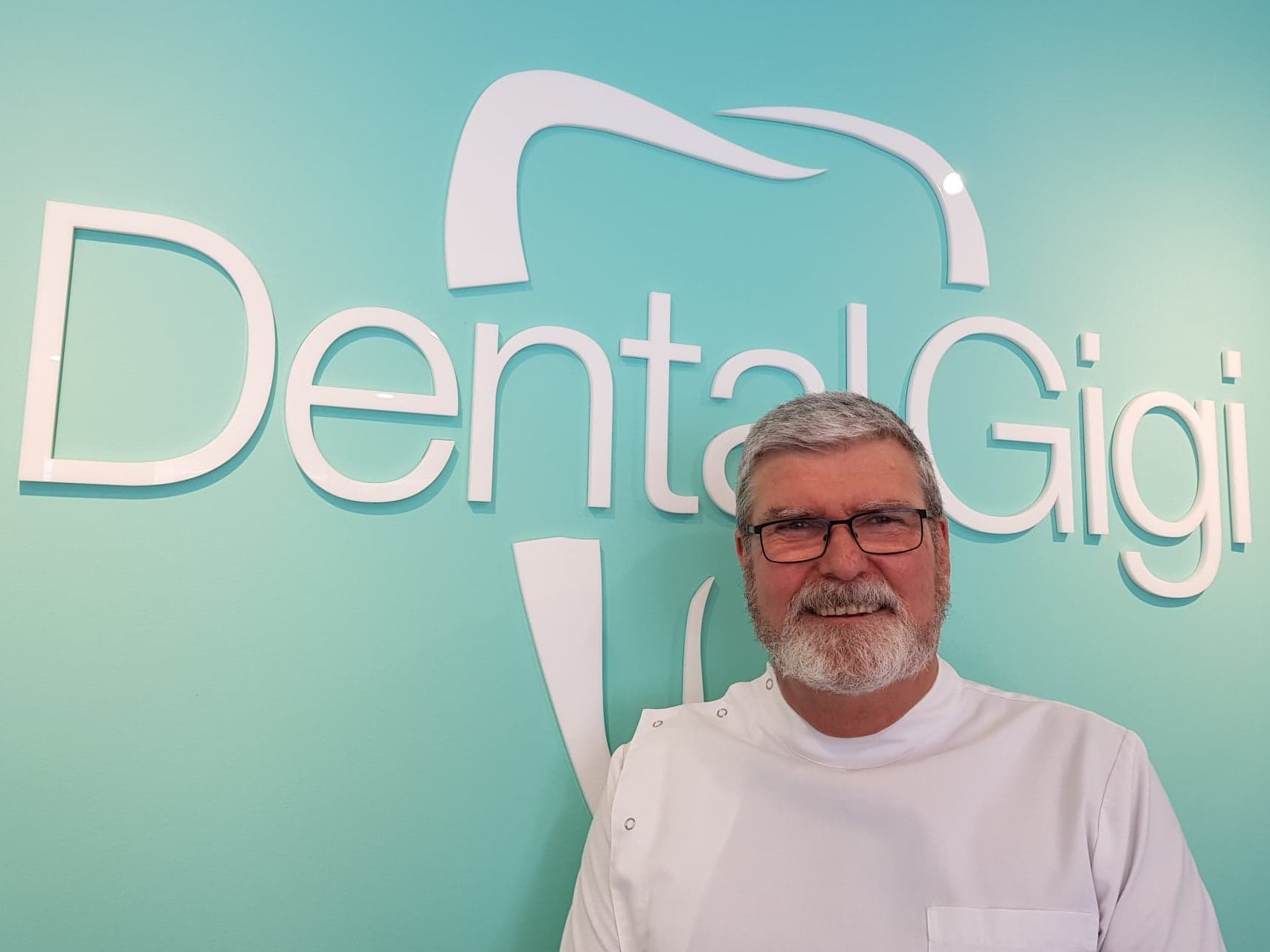
Stephen doyle
Dentist
Dr. Stephen is a seasoned dentist with more than 35 years of experience in the field of dentistry. Experienced in complex wisdom teeth surgeries, he is available on Mondays and Tuesdays. Over his career, Dr. Stephen has completed over 40,000 extraction cases, with some wisdom teeth extractions taking less than five minutes. Dr. Doyle's extensive experience as a dental professional is evident in every procedure he performs.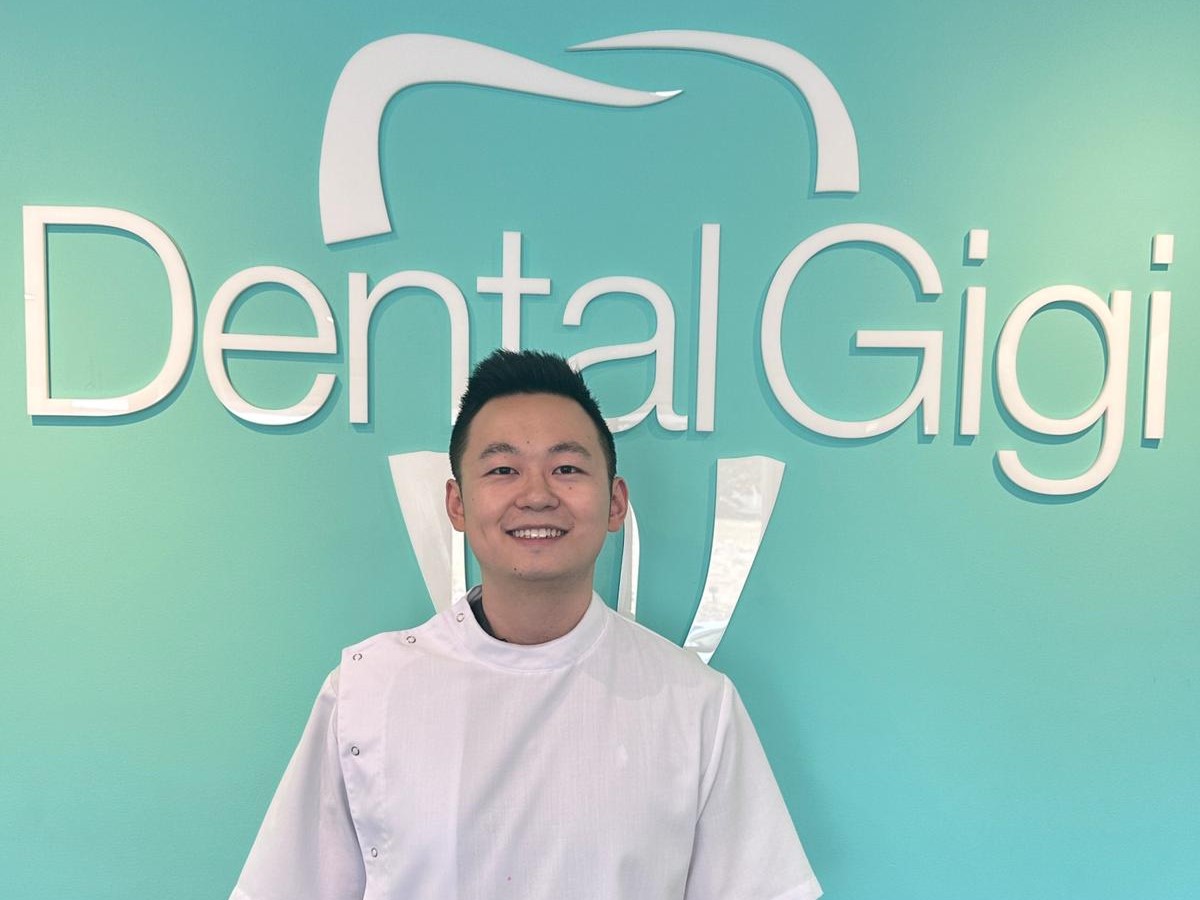
Steven Zhang
Dentist
Dr. Zhang is a well-rounded dentist with a wealth of experience and a deep passion for dentistry. A local UWA DMD graduate, he speaks both Mandarin and English fluently. He balances his life with fitness and Mixed Martial Arts, embracing the connection between a healthy body and a healthy mind. His keen nature and fine skills make him a reliable dentist dedicated to providing high-quality care to all his patients.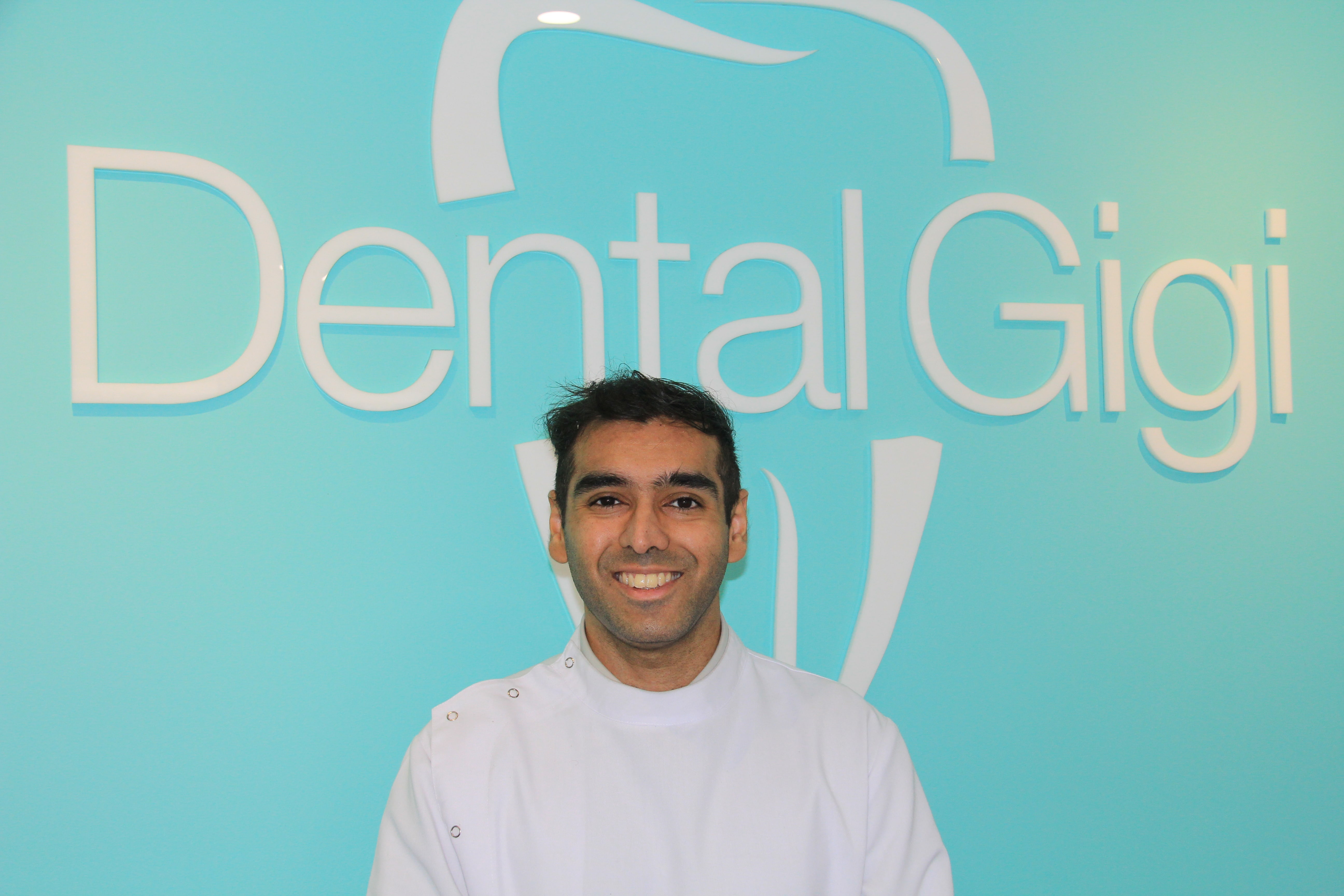
Sadha Shiv Gupta
Dentist
Dr. Shiv is an experienced dentist who graduated from the University of Western Australia. He is a member of the Australian Society of Implant Dentistry, the International Congress of Oral Implantologists, and the ADA. Passionate about implants, he has handled complex cases over the years. Dr. Shiv also participated in a volunteer programme in Vietnam, helping underprivileged children. He enjoys dance, music, family, friends, his beloved German Shepherd, and Singaporean food.
Sadha Shiv Gupta
Dentist
Dr Shiv trained and graduated from the University of Western Australia and has a strong passion for root canal treatment as he was fortunate to have been given some very complex cases over the years. Dr Shiv is an active member of the ADA and participates heavily in CPD courses across Australia. He was part of a team who travelled to Vietnam as part of a CHAT volunteer programme where they treated underprivileged children and monks. Dr Shiv loves dance, music and spending time with family, friends and his adorable German Shephard.Take the first step with our exclusive
somE of our happy patients..(and we have lots)








Why use a Guided Surgery Method?
Take the first step with the
The Four Stages of Implant surgery
Stage 1: Implant Planning

We will perform a detailed clinical evaluation to assess your suitability and risks for implants. This often involves taking a 3D CBCT of your jaw to help plan your implant effectively. Some important considerations include the following:
- Amount of bone in jaws
- Site of implant
- Quality of bone in jaws
- Spacing available for implant
- Oral hygiene habits
- Smoking, diabetes, and other systemic conditions
- Proximity to nerves, arteries, and other structures
- Clenching or grinding habits
Stage 2: Guide Fabrication
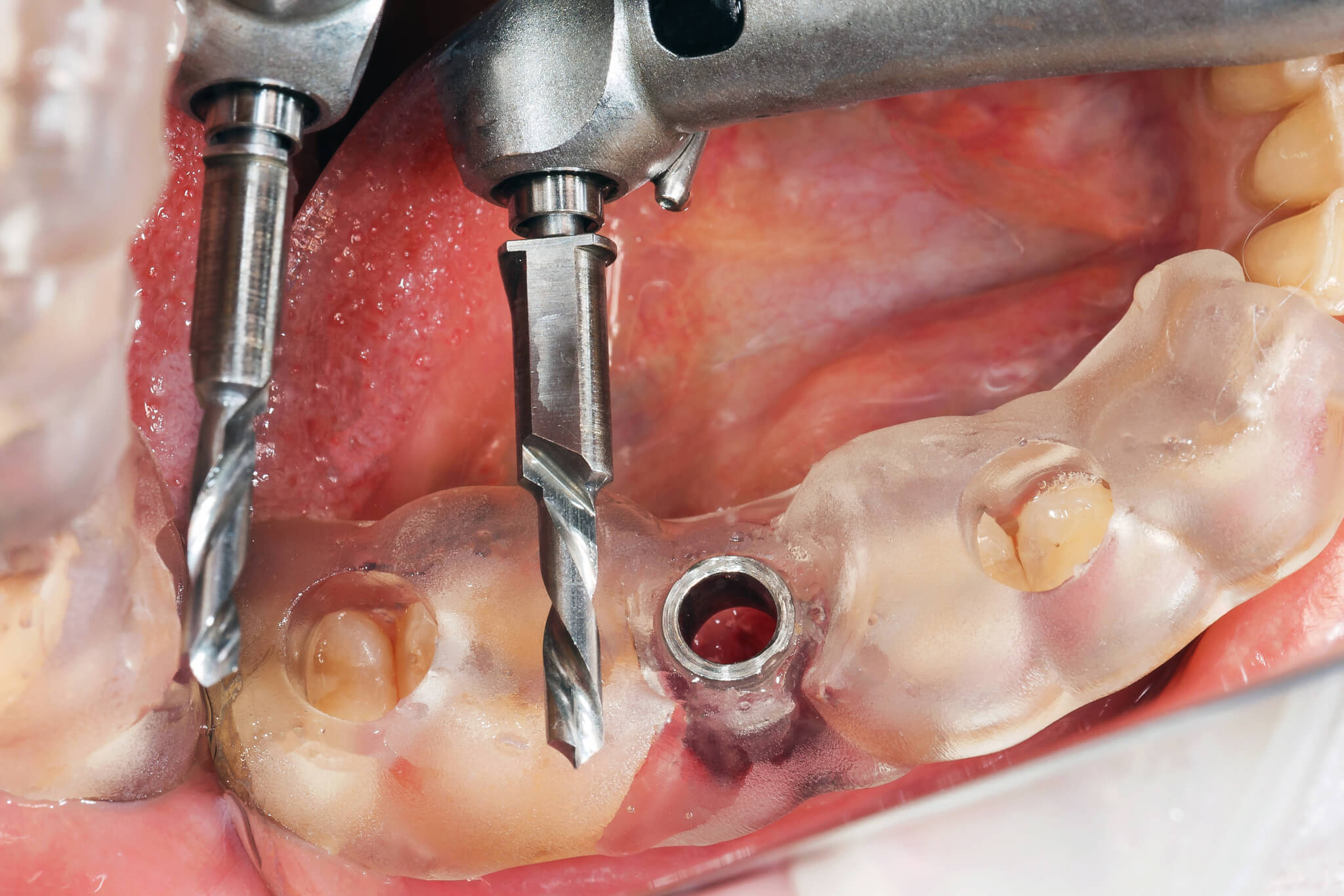
Dental Gigi uses a guided method of implant placement that is highly regarded in the market. A special guide is made before your surgery, enabling us to perform surgery with precision. The image on the left displays a surgical guide that is positioned precisely at the site where the implant will be placed. This allows for better accuracy and placement and reduces human errors during the procedure.
The alternative to the guided implant method is known as freehand placement, which means that no surgical guide is used. This can often result in some errors in placement or other issues. Because of this, we highly recommend using a guide for proper planning of implant surgery.
The implants we use are of high quality and from Israel. They are used in over 100 countries across the world, including the United States, Germany, and most of Asia. Once your customised implant and guide arrive, you are ready for the next stage.
Stage 3: Implant Surgery
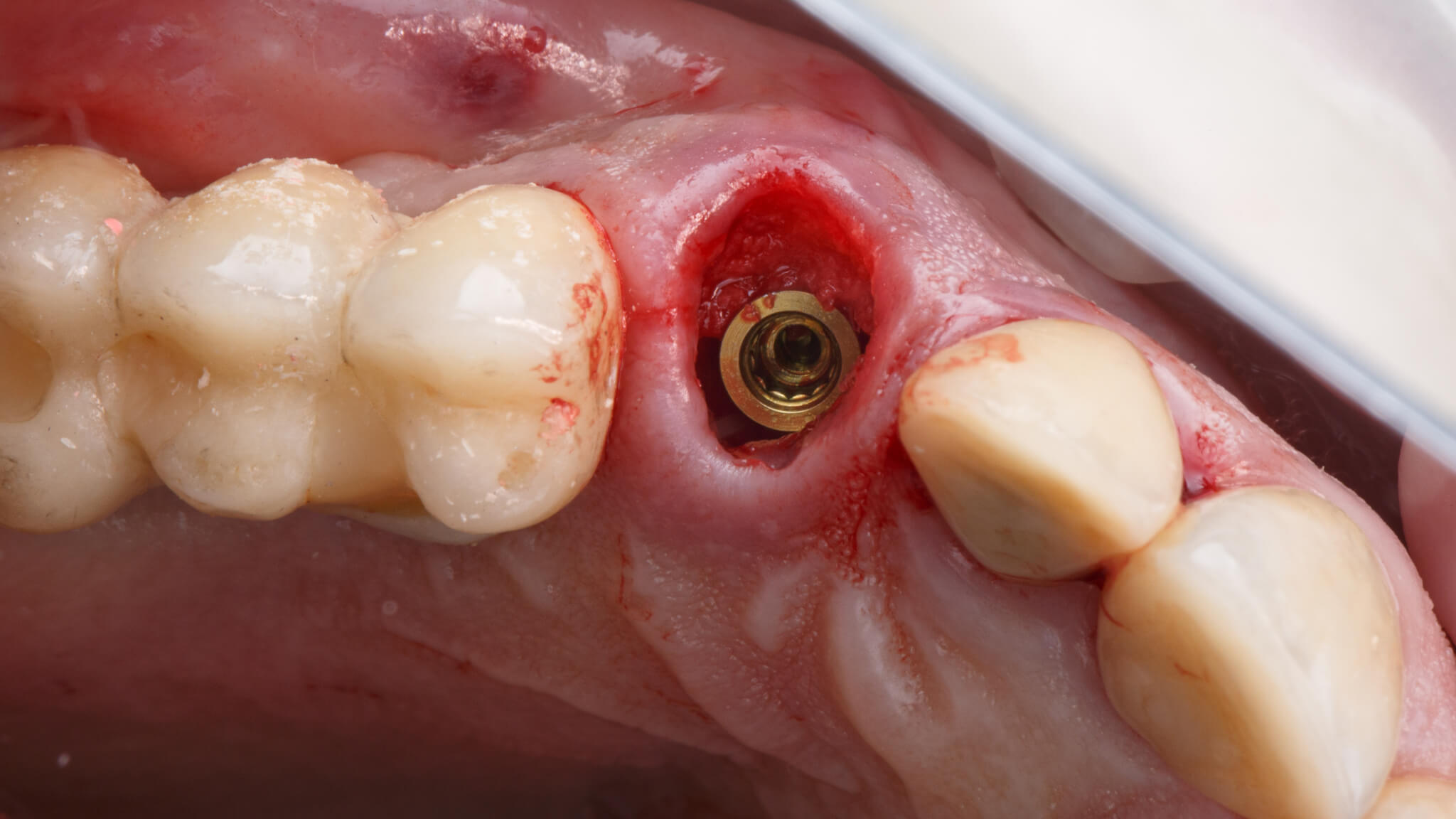
On the day of surgery, you will be made comfortable, and the procedure will be thoroughly explained again before we begin. The surgical environment is maintained under strict sterility, with sterile drapes and equipment used to minimise bacterial exposure. You will receive adequate local anaesthesia, and the surgery typically lasts about 30-45 minutes per implant site. Postoperative discomfort is expected for a few days, but it is generally manageable with pain medication.
Following the surgery, we typically recommend a waiting period of one to three months before proceeding with the placement of the crown (Stage 4). In some cases, an earlier placement may be possible, depending on individual circumstances. A temporary healing cap will be placed, and in certain situations, the gums may be allowed to grow over the submerged implant.
Stage 4: Crown Loading

The final stage is performed about one to three months after implant surgery. The first step is to assess your implant and whether it has integrated with your body. This is often the case for about 95% of implant cases at that stage. For the remaining 5%, we will continue to let the body do its work in integrating and accepting the implant before deciding when to load it.
The crown placement process requires two appointments. During the first visit, we take detailed impressions and select a shade that matches your natural teeth. These are then sent to a professional laboratory in Perth, where your custom implant crowns and abutment are fabricated. We use only 100% original components, and all work is produced locally in compliance with Australian standards.
Frequently Asked Questions About Dental Implants
Find answers to frequently asked questions about dental implants, from initial preparation to long-term care and maintenance.
Determining whether dental implants are suitable for you involves several factors. Here are some key considerations:
- Bone Density and Volume:
You need enough healthy jawbone to support the implant. If your bone density is insufficient, you might need a bone graft before implants can be placed. - Overall Health:
Good general health is important. Chronic conditions like diabetes or autoimmune diseases can affect healing and implant success. - Oral Health:
Healthy gums and teeth are crucial. If you have periodontal disease, it should be addressed before proceeding with implants. - Commitment to Oral Hygiene:
Implants require good oral hygiene practices to avoid infections and achieve long-term success. - Lifestyle Factors:
Smoking and heavy alcohol use can negatively impact the success of implants.
If you’re considering dental implants in Perth, schedule an appointment with us today. Our dental team will carefully assess whether implants are a suitable option for you.
If you don’t have enough bone for dental implants, the implant cannot be securely anchored. However, this doesn’t mean that you cannot have dental implants.
Bone grafting is a common and effective option for patients with inadequate bone. It involves placing bone graft material, which will stimulate the natural bone to grow and strengthen the area.
It usually takes about six months for the bone to heal and become stable. Here are the types of graft material commonly used for dental implants:
- Autografts:
Bone is taken from your body, such as the jaw or hip. It is then grafted to the implant site to promote natural healing. - Allografts:
Bone is sourced from a human donor, usually from a bone bank. It is then processed to be safe and effective for the bone graft procedure. - Synthetic Grafts:
Biocompatible, artificial materials are used to encourage new bone growth, mimicking the function of natural bone.
Once the bone has healed, a 3D scan is used to assess whether the area has enough bone for the dental implant procedure.
The timing of getting a dental implant after tooth extraction varies for every person. It depends on various factors, including oral health and the condition of the extraction site.
- Immediate Implant Placement:
In some cases, an implant can be placed immediately after the tooth is extracted. This option is suitable if there is no infection and enough healthy bone is present to support the implant. - Early Implant Placement (2 to 3 months post-extraction):
This option is often chosen if there is some bone loss or minor infection around the extraction site. After two to three months, the soft tissues heal, and any infection clears up. The implant can then be placed, allowing better stability and a more predictable outcome. - Delayed Implant Placement (4 to 6 months post-extraction):
If significant bone loss or infection is present, a delayed implant placement may be necessary. This allows time for the bone and soft tissues to heal completely. In some cases, bone grafting may be required to rebuild the bone before placing the implant. - Late Implant Placement (6+ months post-extraction):
If a patient has had missing teeth for an extended period, bone loss may have occurred. In such cases, bone grafting is usually required to rebuild the jawbone before implant placement, extending the treatment duration.
Dental implant surgery is generally not very painful, as the procedure is performed under local anaesthesia to numb the area where the implant will be placed. Most patients feel pressure during the surgery but no significant pain. Here’s what you can expect during and after the procedure:
- During the Surgical Procedure:
The surgery itself is usually painless due to the use of a local anaesthetic. Many patients report that the only discomfort they experience during the procedure comes from the initial injection to administer the anaesthetic. Once the anaesthetic takes effect, there’s usually no pain, only mild pressure as the implant is placed. - Immediately After Surgery:
As the anaesthetic wears off, mild discomfort may begin. Mild swelling and tenderness are normal, and painkillers can help manage them. - 1 to 3 Days Post-Surgery:
Mild to moderate pain may persist during this time, but it usually decreases each day. Swelling and bruising around the gums and jaw are common but manageable. Sticking to soft foods like soups and mashed potatoes helps prevent irritation at the implant site. - 3 to 5 Days Post-Surgery:
Pain levels should significantly reduce. Many patients experience minimal discomfort by this point and can resume normal activities. However, it’s important to follow your dentist’s care instructions to avoid complications. - 1 Week Later and Beyond:
By one week, discomfort should have significantly subsided. Any remaining soreness or swelling is usually mild, and the healing process continues smoothly. Normal eating and activities can usually be resumed.
A guided surgery system uses advanced 3D imaging and digital planning to map out the exact placement of dental implants before the procedure. This technology offers the following key benefits:
- Increased Precision:
Guided surgery allows for accurate implant positioning, using 3D imaging to achieve the right angle, depth, and placement. - Safer Procedure: The system helps avoid critical structures like nerves and sinus floors, reducing the risk of accidental damage during the surgery.
- Lower Risk of Complications:
By planning the dental implant procedure in detail, guided surgery lowers the chances of unforeseen issues, making the process smoother. - Improved Predictability:
With everything mapped out beforehand, the procedure becomes more predictable. This leads to more reliable outcomes for both the surgeon and the patient. - Reduced Need for Adjustments:
The high level of accuracy decreases the likelihood of needing follow-up surgeries or adjustments after the implant is placed. - Efficient Procedure:
By eliminating guesswork, guided surgery shortens the time spent during the procedure and promotes faster recovery.
Yes, dental implants are considered a safe and effective option for replacing missing teeth. Here are several reasons why:
- Biocompatible Materials:
Implants are usually made from titanium, a material that is biocompatible with the human body. It integrates well with the bone, reducing the risk of rejection. - Thorough Planning:
The procedure involves careful planning with advanced imaging techniques, such as 3D scans, to achieve precise placement and avoid complications. - High Success Rate:
Dental implants have a success rate of over 90%, making them a reliable option when performed by skilled professionals. - Minimally Invasive:
Modern techniques, including guided surgery, make implant placement minimally invasive, reducing the risk of damage to surrounding structures. - Well-Regulated Procedure:
Dental implant procedures are performed under strict medical guidelines, which maintain high standards of hygiene, safety, and surgical practices.
With proper care and planning, dental implants offer a safe, long-term replacement for missing teeth.
While dental implants are generally safe, there are some risks and complications that patients should be aware of:
- Infection:
An infection can develop around the implant site. It is often caused by poor oral hygiene or bacteria entering the wound during or after surgery. Its symptoms include swelling, pain, and fever. - Dental Implant Failure:
In some cases, the implant may not fuse properly with the jawbone (osseointegration). This can be caused by insufficient bone density, smoking, or uncontrolled conditions like diabetes. Symptoms include implant movement or discomfort. - Nerve Damage:
Nerve damage can occur if the implant is placed too close to a nerve. It may cause numbness, tingling, or pain in the lips, gums, or chin. - Sinus Problems:
Implants placed in the upper jaw may protrude into the sinus cavity if not properly positioned. This can lead to sinusitis, headaches, or discomfort in the face. - Bone Loss:
Over time, bone loss can occur around the implant due to gum disease or excessive pressure on the implant. Symptoms include gum recession or visible implant threads.
The healing period after a dental implant procedure varies based on its complexity and patient health. Here’s a general timeline:
- First 24 to 48 hours:
Swelling and mild bleeding are common. Patients should rest, avoid strenuous activity, and consume soft foods like soups and mashed potatoes. - 1 to 2 weeks:
Initial soft tissue healing occurs. Stitches, if present, are usually removed. Discomfort lessens, and daily activities can usually be resumed. - 3 to 6 weeks:
Bone integration begins, where the implant starts to fuse with the jawbone. Patients may still need to be cautious with chewing. - 3 to 6 months:
Full osseointegration, where the implant securely fuses with the bone, is complete. The dental crown or other prosthetic can be placed after this period.
The lifespan of dental implants is at least 20 years. However, this can vary depending on several factors:
- Oral hygiene:
Regular brushing, flossing, and dental check-ups are key to preventing gum disease, which can weaken the implant over time. - Lifestyle habits:
Smoking, excessive alcohol consumption, and poor diet can negatively impact healing and the long-term success of the implant. - Bone health:
Adequate jawbone density and quality provide a stable foundation for the implant to remain securely integrated with the bone. - Bite and grinding habits:
Patients who clench or grind their teeth (bruxism) can put excessive pressure on the implant, potentially shortening its lifespan. - Overall health:
Conditions such as diabetes or autoimmune diseases can affect healing and may impact the lifespan of dental implants. - Implant material and placement:
High-quality materials and precise placement contribute to the implant’s durability and overall success.
The cost of a single-tooth implant usually ranges between $3,000 and $5,500. Several factors influence the price, including:
- Location:
Clinics in major cities tend to charge more than those in regional areas due to higher operational costs. - Dentist’s Experience:
Professionals with more dental experience may charge higher fees, reflecting their skills and quality of work. - Implant Material:
Titanium is commonly used for its durability, but zirconia implants can be more expensive due to aesthetic benefits. - Pre-surgery Procedures:
Additional procedures like bone grafting or sinus lifts are necessary for patients with insufficient bone structure and can increase dental implant cost. - Number of Implants:
Replacing multiple teeth increases the overall price. - Aftercare and Follow-up:
Post-procedure care, including regular check-ups and adjustments, may not be included in the initial cost and could increase the total expense.
We highly recommend that you schedule a dental implant consultation with our team at Dental Gigi. We will give you a detailed estimate and other information you need for your treatment.
Whether your health fund covers dental implant costs depends on your specific policy. Here’s how to find out:
- Check Your Policy:
Review your policy documents to see if major dental procedures, such as implants, are included. Some plans only cover basic treatments. - Contact Your Health Fund:
Speak with a representative to clarify whether dental implant cost is covered and to what extent. Ask about annual limits, waiting periods, and any exclusions that may apply to your policy.
Through these steps, you can understand the potential out-of-pocket expenses and the exact level of cover provided for your treatment.
Dental implants are often seen as a worthwhile investment. Here’s why:
- Longevity:
The lifespan of dental implants is usually around 20 years with proper care. This makes them a more cost-effective option in the long run. - Improved Functionality:
They restore normal chewing and speech abilities, closely mimicking natural teeth. - Natural Appearance:
Dental implants look and feel like real teeth, enhancing confidence and comfort. - Preservation of Surrounding Teeth:
Unlike bridges, implants don’t require the alteration of adjacent healthy teeth. - Bone Health:
Implants stimulate the jawbone, preventing bone loss that can occur when teeth are extracted.
Dental implants offer many significant advantages over other tooth replacement options:
- Stability:
Implants are anchored to the jawbone, providing a stable and secure fit, unlike loose-fitting dentures, which can slip or move. - Bone Preservation:
By stimulating the jawbone, implants help prevent bone deterioration that often occurs with other teeth replacements. This helps maintain your facial structure, preventing the sunken appearance that can result from bone loss over time. - No Impact on Surrounding Teeth:
Unlike dental bridges, implants don’t require modifying adjacent healthy teeth, preserving your natural tooth structure. - Improved Comfort:
Implants function like natural teeth, making them more comfortable for chewing and speaking compared to removable dentures. - Low Maintenance:
They require no special adhesives or cleaning routines, simply needing the same care as natural teeth.
Yes, dental implants can be as good as real teeth in the following ways:
- Functionality:
They restore full chewing ability, similar to natural teeth. - Aesthetic Appearance:
Implants are custom-made to match the shape and colour of adjacent teeth. - Bone Preservation:
They stimulate the jawbone, preventing bone loss. - Durability:
With proper care, they can last many years, like natural teeth. - Low Maintenance:
They require standard oral health care practices, similar to natural teeth.
If you’re ready to start your dental implant journey with us, here are the next steps:
- Initial Check and Clean:
The first step is a comprehensive check-up and professional cleaning, which we offer at a special package price of $199. This helps detect any existing oral health issues, such as damaged teeth, decay, or advanced gum disease. Before proceeding with implant treatment, these problems need to be addressed to achieve long-term success. - Bone and Site Assessment:
A thorough evaluation of the jawbone and the implant site is essential. It is usually done through advanced imaging technology like a 3D bone scan or CBCT (Cone Beam Computed Tomography). These tools help assess whether there is sufficient healthy bone to support the implant. - Treatment Planning:
Once the assessment is complete, we’ll propose a personalised treatment plan. The plan considers bone quality, oral health, and any additional procedures, such as bone grafting, that may be needed. - Implant Placement:
Once the detailed treatment plan is finalised, the dental implant procedure will be scheduled. During the surgery, a titanium post is placed in the jawbone. A healing period of three to six months follows, during which the bone integrates with the implant. - Final Restoration:
After sufficient healing, an abutment and a crown are attached to the implant, completing the process. The entire treatment can take 5–12 months, depending on individual cases.
Yes, our dental implant prices are considered highly competitive, and here’s why:
- Large, Established Clinic:
With 20 staff members and seven dentists across two locations, we are a well-established clinic. Our large patient base of over 9,000 allows us to keep costs lower without compromising quality. - Comprehensive Dental Care:
Patients visit us not just for implants but for a wide range of dental treatments. This helps spread costs and maintain affordability for more complex services like implants. - High-Quality Implant Brands:
We use only high-quality implant brands with 100% original components, providing exceptional durability and long-lasting results for your implants. - Locally-Made Crowns:
Unlike many clinics, our crowns are made in Burswood, allowing for faster turnaround times and higher quality control. We use high-quality zirconia for outstanding aesthetic and functional results. - Advanced Dental Implant Technology:
We use a guided surgery system for precise implant placement, maintaining high standards of quality and safety.
Given these factors, our competitive rates reflect exceptional value. To learn more, book a free consultation with us to discuss your specific needs and options.




